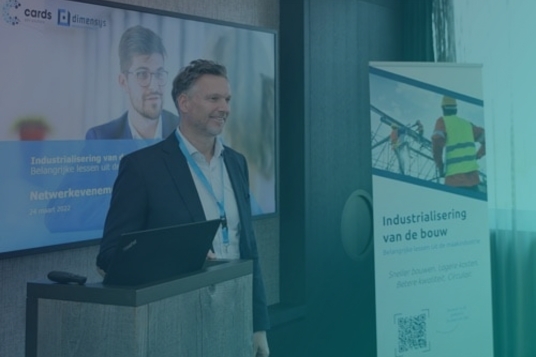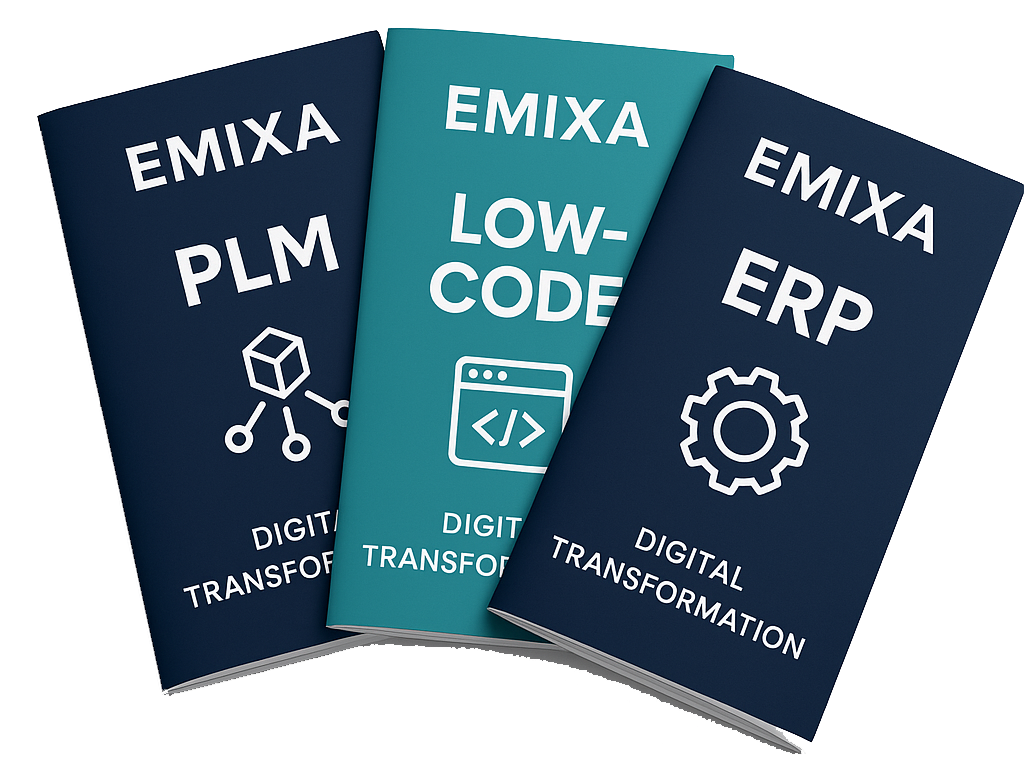
- Construction & Infrastructure
Review of Expert Event 'Industrialization of Construction'

March 24, 2022 - Experts from the construction and manufacturing industry come together to inspire each other about the opportunities to build smarter and more economically.
"What is possible in the manufacturing industry must also be done in the construction sector”
Build quickly and smartly. That is the challenge for the coming years. Huge numbers of new homes are needed, while resources are scarce and regulations are increasing. Industrialization seems to be the solution: prefab and modular construction and thus drastically simplify the construction process. A real breakthrough only goes one step further, as became apparent during the expert event 'Industrialization of construction' by Emixa and cards PLM Solutions on Thursday, March 24 in Cromvoirt. The construction sector can learn a lot from the manufacturing industry.
During the event, a large number of stakeholders from the construction and manufacturing industry came together to inspire each other about the opportunities to build smarter and more economically. The result: a lively afternoon full of dialogue, discussion and valuable insights.
Plea for the 'Legolization' of construction
Hennes de Ridder, Emeritus Professor of Integrated Design at TU Delft, it is a thorn in the side that the construction sector is constantly reinventing the wheel. “The organizations are traditional. The product, a structure, is complex. Together this creates a structure of complex operational islands, within which there are many interfaces. Everything is separated and ultimately connected by interface solutions. Everything starts again with every project.” He advocates 'Legolization' of the construction sector: connecting the operational islands in the construction chain and converting the interfaces into fully-fledged and interactive relationships.

Figure 1: Professor Hennes de Ridder advocates the 'Legolization' of construction
Offering customization and still automating it
Then it is up to Bart Vermeulen, Technology Manager at conTeyor. This organization designs 'logistic carriers' for the automotive industry: packaging to transport car parts safely and efficiently from A to B. Vermeulen explains: “50% of the products for which we receive a request are different each time. But 50% of the products are universal, such as headlights. For us, these are routine jobs that you can easily parameterize and automate. We started this in 2008 and since then our efficiency has increased enormously.”

Figure 2: Bart Vermeulen from conTeyor explains how they parameterize and automate the design process of their packaging
Roundtable sessions
Finally, the guests discussed a number of provocative statements. Such as the differences between mechanical engineering and factory construction of homes, the impact of tender regulations, customer demand and chain cooperation and the ability of the construction sector to standardize and automate.
The sun-drenched afternoon ended with an informal drink, during which we continued to talk for a long time.

Figure 3: An impression of the afternoon drinks

Vincent Beumer
Vincent is a marketing manager and highly experienced consultant with extensive knowledge on Digital Transformation and Analytics within the SAP-domain.
Get in touch
Ready to make a business change? At Emixa, we'd be glad to share our comprehensive insights. Contact us to discover how our approach can help your organization thrive in the cloud era. Let's embark a journey towards enhanced efficiency and effectiveness together!
Author: Vincent Beumer
Published date: August 26, 2025

Explore our Technology. Access our downloads center.
Access NowStart your Digital Transformation with Emixa

We help businesses transform their digital future with cutting-edge technology and strategic products & services


